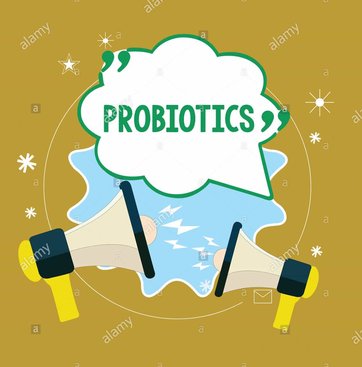What is caffeine?
Table of Contents
It is a naturally occurring chemical found in the tea, coffee, cola and other energy drinks which is used to increase mental alertness by decreasing the sleep cycle. It is about 60 herbs in which we find caffeine. When we drink or eat anything containing caffeine, it enters our blood which transports it into various organs like a heart, kidney, and Brain. People consume it to stay awake or alert. Caffeine is a psychiatric drug produced under a license which changes the brain and nervous system chemically. It is a widely used psychiatric drug in the world.
The general myth about Caffeine:
The widespread myth is that caffeine gives us the energy to stay away from sleep. But It’s not true. It doesn’t provide us with energy but may make our metabolism work faster.
What is adenosine and how it impacts brain functionality?
Adenosine is a compound formed in Brain. It is byproduct when our body uses adenosine triphosphate (ATP) to produce energy. The more our body uses ATP to make energy, more adenosine produced in the body. Even our heart’s peacekeeping cells too have adenosine receptors. The amount of adenosine produced in the brain reflects the level of activity of neurons and glial cells Because neuron breaks the adenosine triphosphate into energy and adenosine.
How Adenosine impacts our sleep cycle:
ATP to energy conversion produces adenosine as the byproduct which remains as it is in the neurons. Our brain uses energy generated from the ATP throughout the day; adenosine level rises in neurons. When neuron has more adenosine than its storage capacity, some adenosine exits the neurons. It can then bind to adenosine’s receptors which makes us sleep. High adenosine level means brains are highly active, and it needs rest. Therefore, adenosine makes us sleep.
Adenosine has two effects based upon the adenosine receptor it has to activate:
- If the adenosine receptor activates an A1 receptor found on neuron which keeps us awake, those neurons become less active.
- If adenosine activates A2A receptor found on a neuron that starts sleep, those neurons become more active.
The combined action of these two activations falls us sleep or kept us awake depending upon who dominates. During sleep, the brain restores energy and removes adenosine. Eventually, the brain has left with less adenosine to activate receptors which make us feeling refresh.
How caffeine makes us alert?
The structure of adenosine and caffeine is very similar which means caffeine also binds with adenosine receptors. However, as they unite with adenosine receptors, they cannot activate adenosine receptors because it doesn’t have an exact similarity with adenosine. Caffeine only competes with adenosine for the receptors. And, it makes difficult for adenosine to activates adenosine receptors to make us sleepiness. It is how caffeine kept us awake by decreasing the sensitivity of neurons to adenosine. Caffeine effects only stay for two or three hours. When our body breaks down caffeine, adenosine can easily bind up to receptors again to cause sleepiness. If we continuously use caffeine for a long time, we may feel alertness for more time. But when chronic caffeine user stops using it, it may intensify the sleep-inducing effect of adenosine. Therefore, the user may feel sleepiness, fatigue, and difficulty in concentrating things. They need caffeine to drink persistently, but we cannot classify it as a real addiction because a person can get to normal after one week or more when adenosine receptors return to normal.
Caffeine impact on Heart and Kidney organs:
As adenosine present in the brain, it is also present in heart and kidney. Just like activating A1 receptors in wake stimulating neuron decreases their activity, activating an A1 receptor in heart and kidney also decreases their activity. It means less blood flow from the heart to kidney and less blood filtering in the kidney. Less blood filtration means less urine production by the kidney. Thus activating A1 receptor is a way to give these organs a rest. When these A1 receptors are blocked by similar look caffeine, the opposite occurs leading to more blood flow and more urine production. For people who have ingested more amount of caffeine, they may feel uncomfortable. It leads to symptoms like a headache and insomnia from over alertness.
Caffeine is not safe for the person having any heart problem because it increases the workload on the heart. So it is always advisable to consult with your doctor before using anything containing caffeine.
Caffeine decreases mood of suicide:
According to a study published in the world general of biological psychiatry, caffeine can significantly lower suicide attempts. Caffeine stimulates the central nervous system and boosts dopamine and adrenaline which helps us to fight with anxiety and stressful condition. Hence, it is a proven remedy for decreasing the suicide rate.
Caffeine as a pre-workout drink:
Peoples use it in the pre-workout diet because it forces the brain to release glutamine and dopamine which boost up our mood. When we start a workout, our body first burns glycogen before fat to produce energy. When bloodstream left with no glycogen, then it burns fat to produce energy. Caffeine inverse this process, i.e., now our body first burns fat than glycogen. But it’s over-consumption may cause thinning of our bones by disturbing the absorption of calcium by bones.
Caffeine impact on blood vessel:
It causes the contract of vessel walls leading to narrowing of the blood vessel. It results in an increase in blood pressure for a short time which is not healthy for a patient with heart problems. But blood pressure comes to normal when hormones for widening the blood vessels released in the bloodstreams.
Caffeine overdose:
It is tough for us to do caffeine overdose because for overdose we need to consume approx. 600 mg of caffeine equal to 7 to 8 cups of coffee. But it is always advised by the physician that if you want to reduce the consumption of caffeine, then decrease its consumption slowly.
Positively impacts the liver:
As everyone knows alcohol consumption is bad for your liver. Approximately 40% of liver diseases occur due to alcohol consumption. But here is good news according to the latest research that caffeine can reverse the damage of liver by alcohol. It can also improve the poor dietary habits. According to the latest research, almost two cups of the coffee/day can significantly reduce the chances of development of liver cirrhosis.
Impact on the lymphatic system:
As blood supply nutrients and oxygen to different parts of the body, there is another circulatory system in the body which is always overlooked i.e. lymphatic system. It will surprise you to hear an amount of the lymph in the body is almost three times the amount of blood in our body. Lymph removes the waste substance from the cells and deals with infections. It cleansing the cells and passes through various channels before joining the general circulatory system. As the lymphatics system doesn’t work properly, waste accumulates in the cells and chronic infection occurs. Inside the lymph vessels, there is a special white blood cell called lymphocytes which produces antibodies. These antibodies combine with an infectious microorganism so that the rest of the immune system recognizes the infection and destroy it. Drinking caffeinated drinks may cause blockage and congestion which hampers the cleaning function of the lymph. Thus, overall caffeinated drinks may be harmful to you. Always consult with your physician if you experience any problem in the neck as it may be due to coffee.
caffeine may cause underdevelopment of foetus:
Drinking too much coffee may cause miscarriage as study reveals that because it increases the time of conception. But one or two cups per day doesn’t cause miscarriage. Too much caffeine may cause slow foetus development.




More Stories
All you need to know about rice bran oil
12 medically proven health benefits of Berberis vulgaris
Ylang Ylang essential oil: Benefits, Uses, & Side Effects